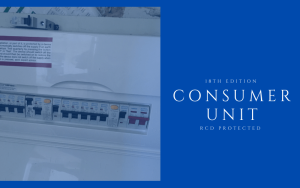As a landlord, it’s your responsibility to keep up with gas and electrical safety certificates. Failure to do so can result in serious penalties, including hefty fines or even jail time! But navigating the complex regulations surrounding these certificates isn’t always easy.
To help you out, I’m here to explain some of the most common mistakes landlords make – and how to avoid them.
No matter your experience level as a landlord, understanding the ins-and-outs of gas and electrical safety certificates is essential for success. By taking the time to learn about best practices and potential pitfalls, you’ll be able to confidently provide safe living conditions for your tenants while avoiding costly mistakes.
Let’s get started!
Not Staying Up To Date With Regulations
As an expert in gas & electrical safety certificates, I see many landlords making the same mistakes. One of the most common is failing to renew their certificates on time. This can lead to unforeseen hazards that could otherwise have been avoided if timely action had been taken.
It’s essential for all landlords to stay up-to-date with regulations and ensure their property remains safe for its occupants. Failing to do so can result in serious consequences such as criminal prosecution or hefty fines from regulatory bodies.
Even worse, a delay could mean tenants are exposed to dangerous conditions which could harm them physically and emotionally.
The bottom line is this: To protect yourself, your tenants and your property, it’s vital you keep up with current regulations regarding gas & electrical safety certificates – no exceptions! Taking prompt action will help limit potential issues before they become major problems.
Not Keeping Records Of Safety Checks
Staying up to date with regulations is only the first step in ensuring gas and electrical safety. Landlords must also take the time to keep records of all safety checks they have conducted, as well as any certificates they’ve issued.
It’s important to remember that these records serve more than just an administrative purpose – they can be a valuable asset when it comes to ensuring accuracy.
Take for example, Sam who owns several rental properties. He was meticulous about making sure his tenants had safe living conditions but he often overlooked one crucial thing – keeping accurate records of the inspections and certifications performed by certified professionals.
After neglecting this critical component, Sam discovered too late that some of his documents were missing or incomplete. As a result, he faced hefty fines from local authorities due to inaccurate information on his property documents; not something you want when dealing with gas and electrical safety!
The takeaway here? When appointing contractors for your suppliers’ work, always check their credentials beforehand and make sure you keep detailed records throughout the process. This way you’ll be able to protect yourself and ensure compliance with current regulation standards at all times.
Not Enlisting A Qualified Electrician
As a gas and electrical safety certificate expert, it’s important to emphasize the need for landlords to enlist a qualified electrician when conducting inspections and maintenance of their rental property.
Not only does this ensure competency in inspecting any potential issues that may arise; it avoids landlords taking shortcuts which can lead to further problems down the line.
It is essential that professional expertise be employed during each step of inspection process, as failure to do so could result in costly mistakes or even injuries should something go wrong.
A qualified electrician will have obtained years of experience in identifying faults and resolving them quickly and efficiently – saving time and potentially money too.
In short, it is critical for landlords to remember proper procedure when dealing with electricity-related matters within their rented properties.
By ensuring all work complies with legislation and is undertaken by an accredited tradesperson, not only are you protecting yourself against risks but also your tenants – peace of mind at its best!
Not Scheduling Regular Maintenance
Landlords often overlook the importance of scheduling regular maintenance on gas and electrical safety certificates. This practice can have disastrous consequences for tenants, as faults may go unnoticed for far longer than necessary.
For example, a landlord might fail to notice warning signs that could lead to serious health risks if not acted upon immediately; such as carbon monoxide poisoning or an electrical fire due to faulty wiring.
It is therefore essential that landlords arrange for inspections at least twice per year in order to protect their tenants’ safety and well-being. During these checks, any issues should be identified and rectified with certified professionals before they become major problems later down the line.
Moreover, it is important that electricity distribution boards are checked regularly in order to ensure there are no overloaded circuits or breakers which could cause fires given the right conditions.
The importance of maintaining gas and electrical safety certificates cannot be understated – neglecting this responsibility places both property owners and tenants alike into potential danger. Failing to schedule regular maintenance puts people’s lives at risk and leaves landlords open to harsh penalties from local authorities should an accident occur due to negligence of duties carried out by them.
As such, proper upkeep must remain a priority for all parties involved in order for everyone to stay safe during occupancy of the premises.
Not Taking Immediate Action When Problems Arise
I often see landlords delay repairs or ignore warnings when it comes to gas & electrical safety certificates.
That can quickly lead to bigger problems, and ultimately cost them a lot more money and time in the long run.
I always recommend landlords take action immediately when they receive a warning or notice of a potential issue to ensure their property remains compliant and safe.
Not taking action can put tenants at risk and result in costly fines or legal action.
Delaying Repairs
One of the most common mistakes landlords make when it comes to gas and electrical safety certificates is delaying repairs. When issues arise, such as failing inspections or reviewing contracts, taking swift action can help prevent costly issues down the line.
However, far too often owners are in a rush to get tenants in their property and neglect necessary fixes until they have been living there for some time. This not only leaves them open to fines from local authorities but also creates an environment which may be dangerous for occupants if left unchecked.
To avoid this, landlords should take immediate action when any problems come up that require attention – don’t let yourself fall into complacency! Taking care of these minor details will ensure your properties remain compliant with regulations while providing safe living conditions for all involved.
Ignoring Warnings
If you’re not taking immediate action when problems arise, then it’s likely that you are overlooking risks and cutting corners to save costs. This can be a huge mistake as ignoring warnings of potential hazards or avoiding necessary repairs could have serious consequences later down the line.
Not only do these choices put tenants at risk but they also open up landlords to fines from local authorities if caught out in an inspection. It is essential for all landlords to take precautions against such issues and make sure their properties remain compliant with regulations so everyone is safe.
Don’t let yourself become complacent – be proactive about any warning signs and address them promptly before it becomes too late! Taking swift action will ensure your property is fit for purpose while protecting both occupants and owners alike.
The key is to always keep safety first no matter what – don’t forget that small details go a long way in keeping gas & electrical certificates up-to-date and compliant with local laws. So remember, if there ever arises an issue that needs attention, act fast!
Not Understanding Fire Safety Regulations
One of the common mistakes that landlords make with gas and electrical safety certificates is not understanding fire safety regulations. While it can be easy to overlook, these regulations are essential for ensuring compliance with existing legislation and should always form part of your testing procedures.
A key element in fire safety regulation relates to the installation of smoke alarms on each floor of a property as well as carbon monoxide detectors where necessary. Additionally, landlords must ensure all furniture provided meets fire resistance standards and provide adequate means of escape in case of emergency. It’s also worth noting that any combustible materials stored close to heating systems or other sources of ignition must be kept to an absolute minimum.
When dealing with fire safety regulations, it’s important that landlords remain vigilant at all times; this includes regularly checking appliances such as cookers and boilers for signs of wear & tear, making sure flues and ventilation points aren’t blocked, installing appropriate fire doors along communal corridors where applicable, adhering to local authority guidelines regarding escape routes from upper levels and replacing worn out cables or sockets which could present a potential hazard.
When done properly, these measures will help you achieve mastery over gas and electricity safety certificates:
- Make sure you understand all relevant legislation when it comes to fire safety
- Regularly check appliances for wear & tear
- Ensure flue/ventilation openings aren’t obstructed by debris
- Ensure all gas connections are secure and properly sealed
Not Knowing What Is Covered By Certificates
When it comes to certificates, a lot of landlords are confused about the differences between gas and electrical safety certificates.
It’s important to check that both certificates are up-to-date and that the landlord knows what each one covers.
Misunderstanding the requirements of certificates can lead to serious safety issues, so it pays to be aware of all the details.
Don’t hesitate to reach out to a qualified expert if you’re unsure about anything related to your certificates.
Not Understanding The Differences Between Certificates
As a landlord, it’s important to ensure that you understand the different certifications associated with gas and electrical safety. Failing to do so can lead to costly mistakes.
A common one is not understanding the differences between certificates – such as an Electrical Installation Condition Report (EICR) versus a Periodic Inspection Report (PIR). Both are essential in ensuring accuracy and avoiding shortcuts when it comes to your rental property’s electricity and gas systems.
An EICR checks for potential risks or hazards within an existing installation, while a PIR inspects all accessible parts of an electrical system at regular intervals.
The EICR should be completed before tenancy begins and then again every five years or whenever any significant changes have been made, whereas the PIR must be conducted annually by law. It’s worth noting that depending on local regulations, some areas require landlords complete both tests together upon initial occupancy.
Bottom line: being aware of these key distinctions will help keep your tenants safe from potentially hazardous situations caused by faulty wiring or other issues related to gas and electricity in your rental property – something no landlord wants!
Not Checking Certificates Are Up-To-Date
It’s essential to understand the consequences of not checking that your gas and electrical safety certificates are up-to-date.
Not only could you be subjecting tenants to potentially hazardous situations, but you may also find yourself in a difficult legal situation if something were to go wrong.
It’s important to ensure all necessary equipment is fully inspected and tested regularly by an accredited electrician or gas safe engineer – this will reduce any risk of accidents within the property.
Failing to do so can put both landlords and tenants at risk; not just from potential damages caused due to faulty wiring, but also through hefty fines for noncompliance with local regulations.
The importance of understanding these rules should never be underestimated!
Not Knowing What To Look For During Inspections
Ensuring accuracy and eliminating risk when it comes to gas and electrical safety certificates is essential for a landlord. Not understanding what to look for during an inspection can lead to costly mistakes that could have been avoided had the right steps were taken initially.
First, landlords should always conduct a thorough visual inspection of all appliances in the property, including stovetops, ovens, dryers, water heaters and any other items powered by electricity or gas. They need to make sure these items are properly installed according to their manufacturer’s specifications and meet local fire codes. Additionally, check smoke detectors are functioning correctly and outlets are adequately grounded as part of this process.
Secondly, research must be conducted regarding any regulations surrounding gas and electric safety inspections in the locality they operate in. This includes familiarizing themselves with any relevant government body responsible for enforcing such standards which will help them know if they are complying with local laws. Moreover, carry out regular maintenance checks on all appliances so problems don’t escalate over time due to negligence on the landlord’s part.
Finally, conducting background checks on qualified professionals who perform these inspections is necessary before entrusting anyone with inspecting your home or rental properties. Reputable service providers should provide certification paperwork confirming their qualifications as well as references from previous customers attesting to their quality of workmanship. By ensuring you hire only experienced technicians you can minimize potential risks associated with inadequate knowledge or sloppy workmanship on behalf of those performing the inspection.
Not Understanding The Difference Between Gas And Electrical Certificates
As a gas & electrical safety certificate expert, it’s my job to ensure compliance with the highest standards and regulations. And yet, I still see landlords make one of the most common mistakes when dealing with these certificates: not understanding the difference between them!
It’s an oversight that can be disastrous for your property…and even worse for those who live in it. Let me explain what you need to know.
A Gas Safety Certificate is mandatory if there are any gas appliances or flues within a residential property – this includes boilers and cookers. This certificate must be renewed annually, ensuring all necessary checks have been done on all applicable appliances by a certified engineer.
In contrast, Electrical Certificates are required whenever alterations are carried out, such as rewiring old fixtures or replacing an appliance like a cooker or shower unit. The requirements differ based on what type of work has been carried out but generally include inspection and testing plans along with visual inspections of equipment such as sockets and plugs etc., to ensure they meet current safety standards.
The consequences of getting these wrong can easily outweigh any perceived savings from cutting corners; so it pays to understand the different types of certificates needed for each situation – and why – before proceeding further down the line. Ultimately, having this knowledge will save you time, money…and potentially lives too!
Not Performing Safety Checks Before Letting A Property
As a gas & electrical safety certificate expert, I’m here to tell you about one of the most common mistakes landlords make when it comes to these certificates: Not performing safety checks before letting out their properties.
This oversight is an extremely dangerous mistake that can have serious consequences down the line. Landlords must always take time to inspect any potential property they are looking at renting out, ensuring all necessary safety inspections and certifications are up-to-date and accurate.
Risks should never be overlooked or ignored as this could lead to dire warnings such as fires, electric shocks, explosions, carbon monoxide poisoning and more.
It’s essential for landlords to research local regulations when it comes to what kind of certification is needed for each individual property in order to remain compliant with the law.
Here are some key points on why pre-letting safety checks are so important:
- All relevant areas related to gas & electrical safety need regular inspection & testing
- Regulations regarding landlord responsibilities vary from area to area
- Gas & electricity installations must meet current standards
- An appropriate record needs to be kept of all tests conducted
Safety checks play an integral role in ensuring tenants’ wellbeing throughout the duration of their stay – taking shortcuts can often result in hazardous situations which should be avoided by adhering strictly to all applicable rules and regulations.
Frequently Asked Questions
How Often Should Safety Checks Be Performed?
When it comes to minimising risk in the home, safety protocols are of utmost importance.
As a gas & electrical safety certificate expert, I’m often asked how often should safety checks be performed?
It’s important to remember that safety checks must be done at least once per year by a qualified professional in order to ensure compliance with all applicable laws and regulations.
Even if there are no visible signs of damage or deterioration, regular maintenance is essential for maximising peace-of-mind and reducing the likelihood of costly repairs down the line.
What Is The Difference Between A Gas And Electrical Safety Certificate?
When it comes to gas and electrical safety certificates, there are some important differences that you should be aware of.
Gas safety certificates focus on the installation and maintenance of gas appliances in your property. This includes checking for carbon monoxide leaks, proper ventilation and any other potential hazards that could arise from unsafe installations or faulty systems.
On the other hand, an electrical safety certificate is designed to test the wiring system in your home, including switches, sockets, circuit breakers and other components which may pose a risk if they aren’t functioning correctly.
Both types of certificates aim to ensure your property is safe – but they do so by looking at different aspects!
How Can I Find A Qualified Electrician?
Finding a qualified electrician to secure the permits and ensure regulatory compliance is essential when it comes to gas & electrical safety certificates.
The task can be daunting, but with the right approach, you will find an expert that meets your needs.
Think of it as a search for the perfect diamond—you don’t want just any stone, but one that sparkles in all its brilliance.
Start by asking trusted friends and family members for recommendations or researching local reviews online.
If possible, ask potential candidates for proof of certification or references from previous clients.
When you’ve found someone who checks all the boxes then you’re ready to hire them confidently!
What Should I Look For During A Safety Inspection?
Preventative measures and safety regulations are two of the most important things to look for during a gas & electrical safety inspection.
As a qualified electrician, I highly recommend that landlords take all necessary steps to ensure their property is safe and up-to-date with relevant safety guidelines.
It’s essential that you check all wiring and circuit boards as well as inspect any appliances connected to both gas and electricity supplies.
If your landlord does not have the necessary expertise, they should hire an experienced professional who can properly identify potential risks or defects in order to meet legal requirements.
What Are The Consequences Of Not Taking Immediate Action When Problems Arise?
When it comes to gas and electrical safety certificates, preventive maintenance is key. Taking immediate action when problems arise can help avoid legal ramifications for landlords down the line.
Ignoring issues or failing to take appropriate corrective measures could leave property owners exposed to hefty fines, penalties, and potential litigation. Furthermore, failure to implement preventative maintenance on rental properties may even result in criminal charges depending on the severity of any incidents that occur.
For these reasons, all landlords should ensure they are up-to-date with their gas and electrical safety certificate requirements so as not to risk any costly repercussions.
Conclusion
As a landlord, it’s essential to stay up-to-date with gas and electrical safety checks. Neglecting proper maintenance of your property can have serious consequences.
I cannot emphasize enough the importance of staying informed on best practices for keeping your tenants safe from potential hazards. Symbolically speaking, these safety certificates represent protection for both you and your tenants; think of them as a shield against disaster.
As an expert in this field, my advice is simple: take care of your responsibilities now so that peace of mind will follow later!






